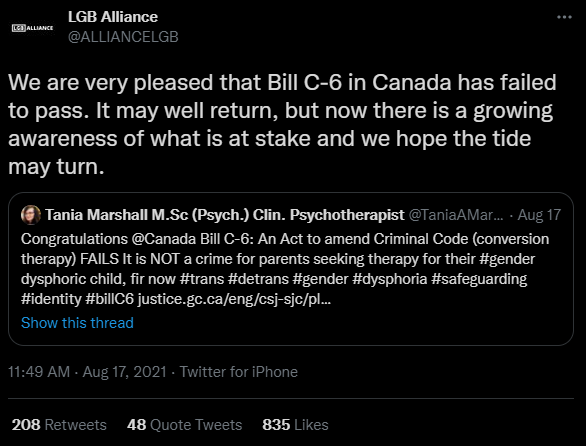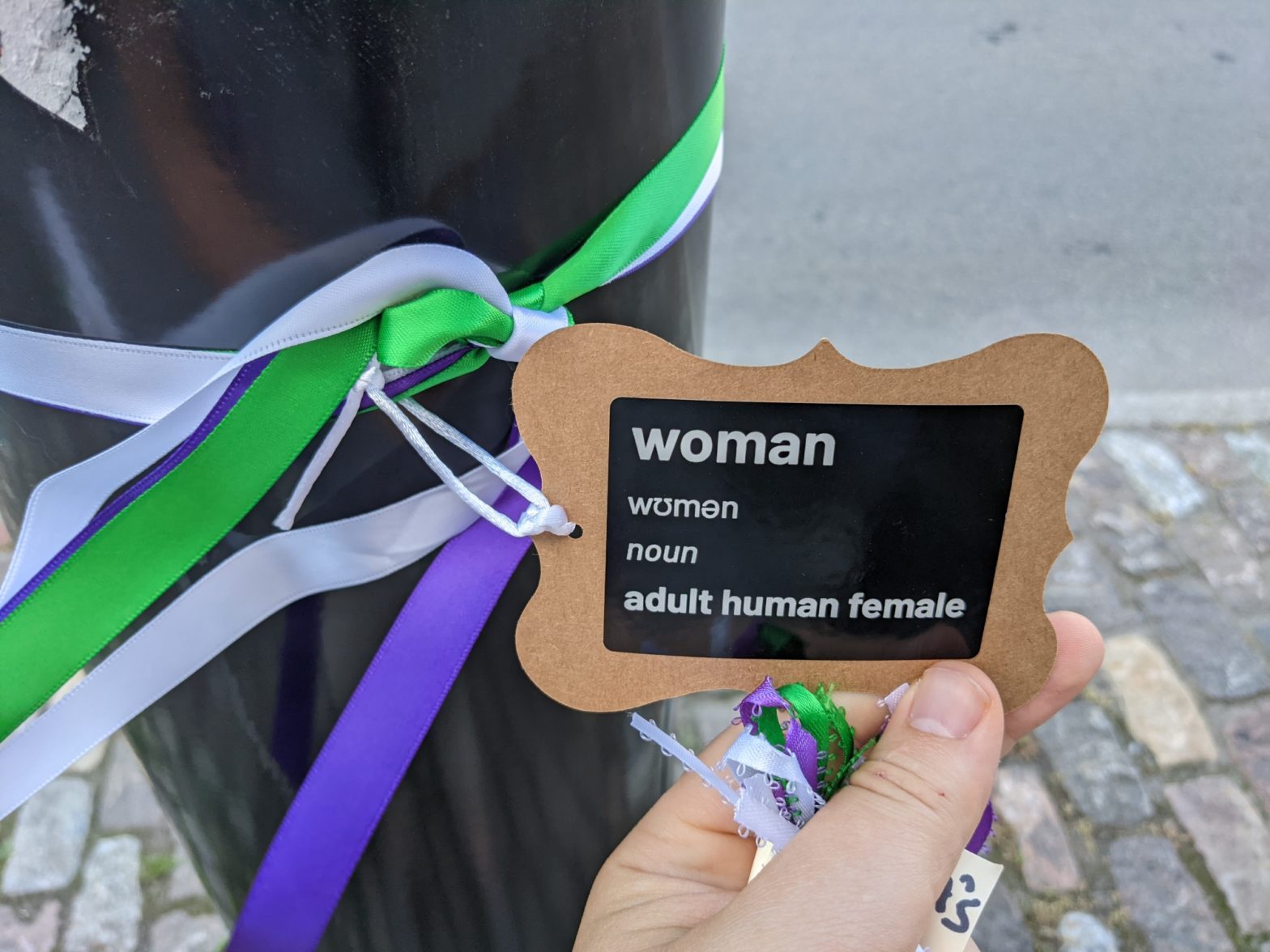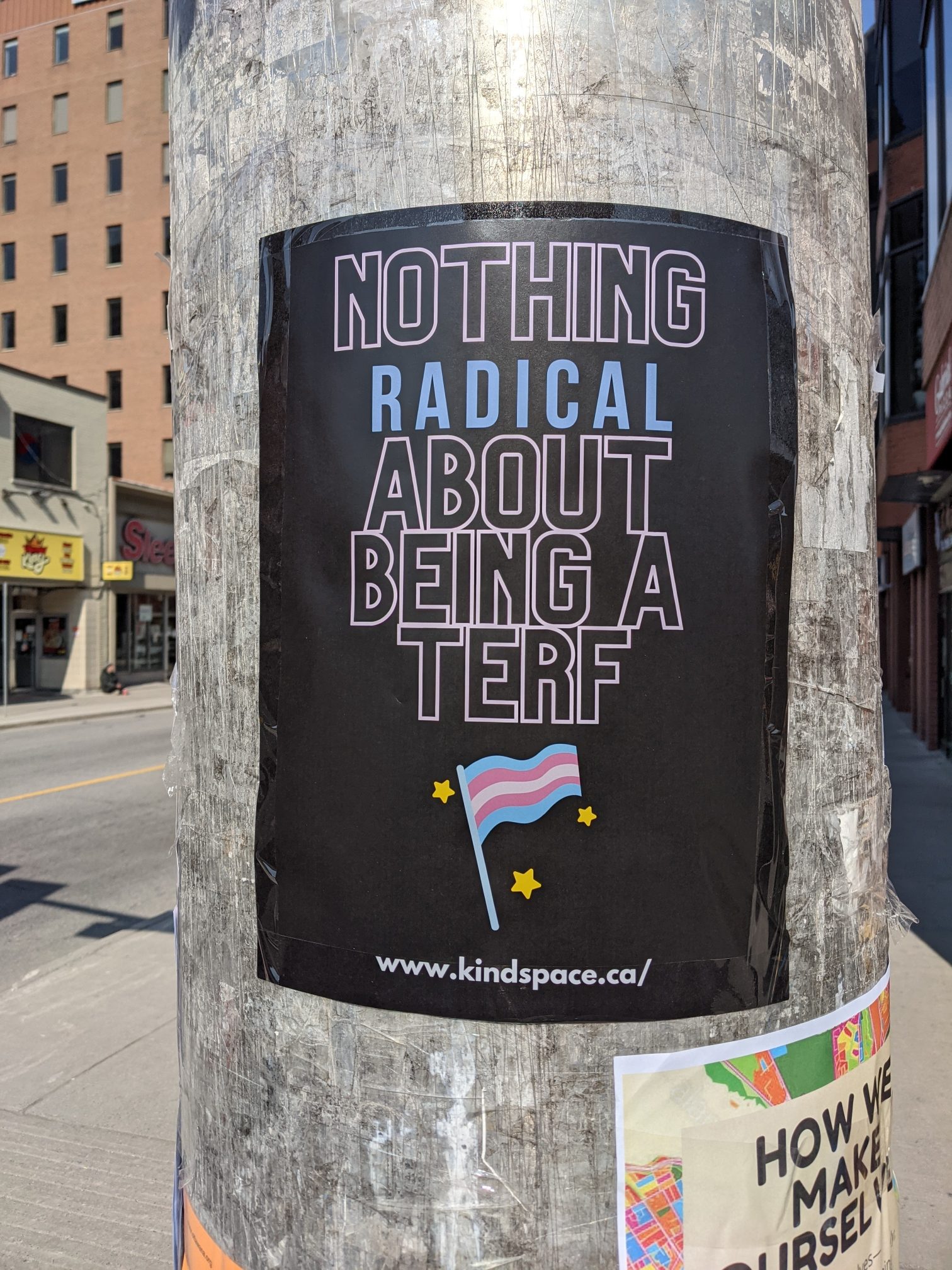Since 2019, organizations devoted to opposing rights for trans people have emerged across the world sharing these characteristics:
- Their name includes the words ‘female’, ‘women’, ‘gender’, ‘sex’ or ‘gay’
- …but they disregard all issues faced by these groups
- …their messaging is instead entirely devoted to curtailing the acceptance of trans and non-binary people
- …they offer no services or assistance to those they purport to represent
- …they oppose legislation that would benefit their alleged base, such as the LGB Alliance opposing a conversion therapy ban
- …they promote sexist/homophobic evangelicals and white nationalists that share an intolerance of gender diversity
Their activism is not about lifting women or gay people up, it’s about putting trans and non-binary people down and doing so in a way that also victimizes the very people they’re claiming to protect.








